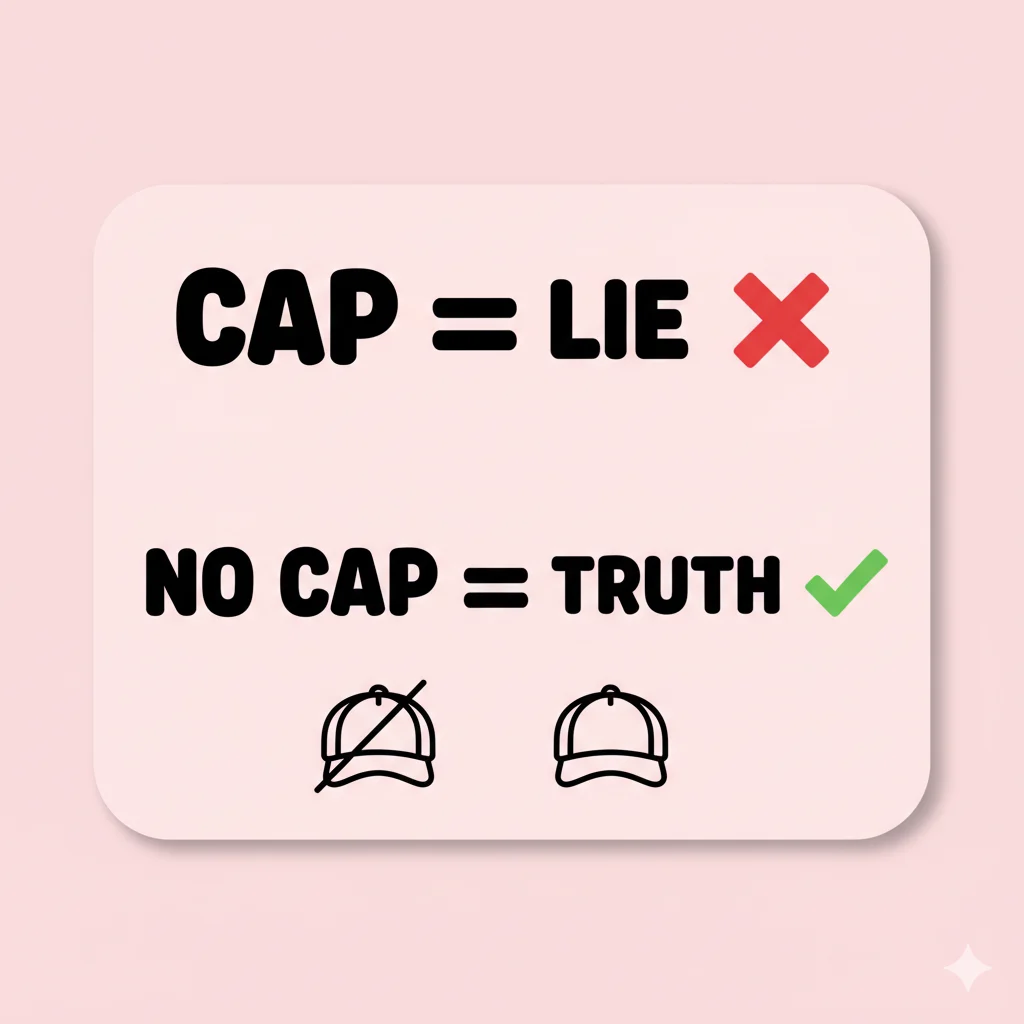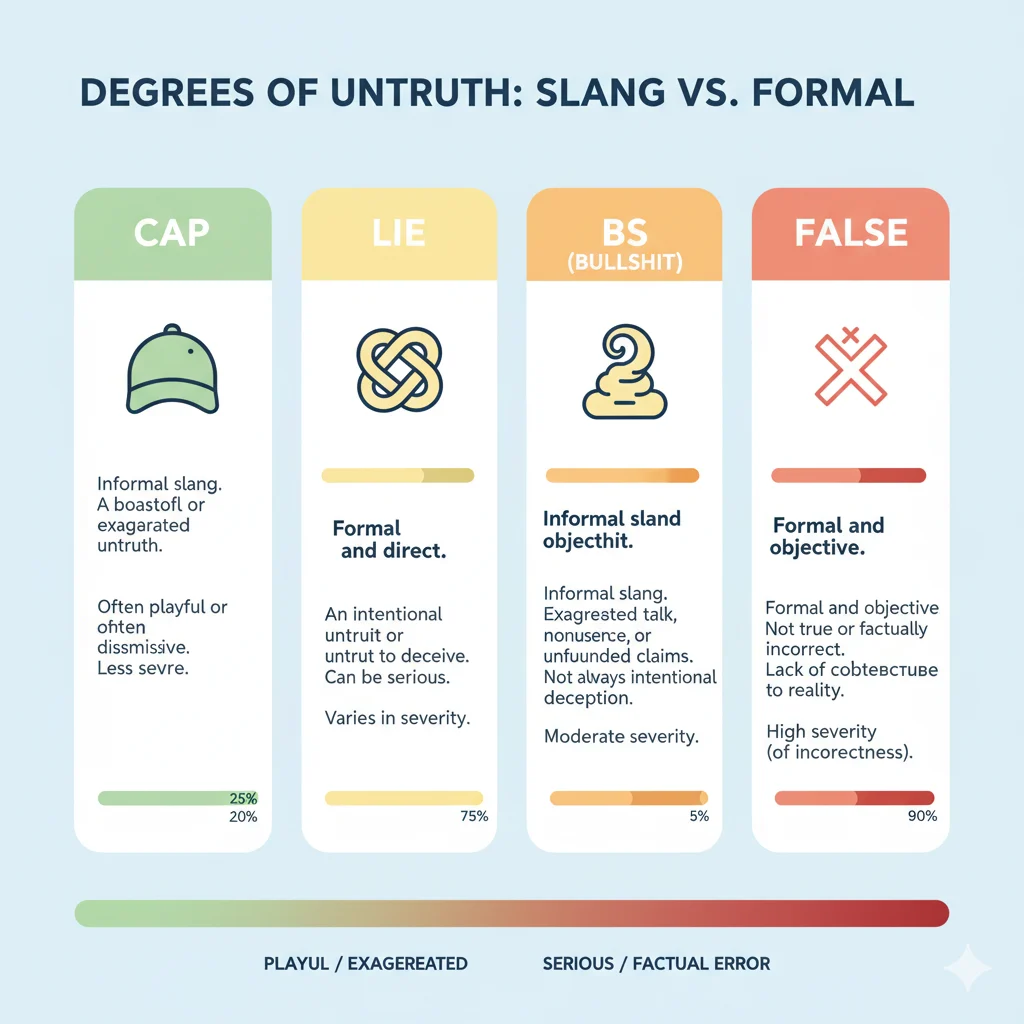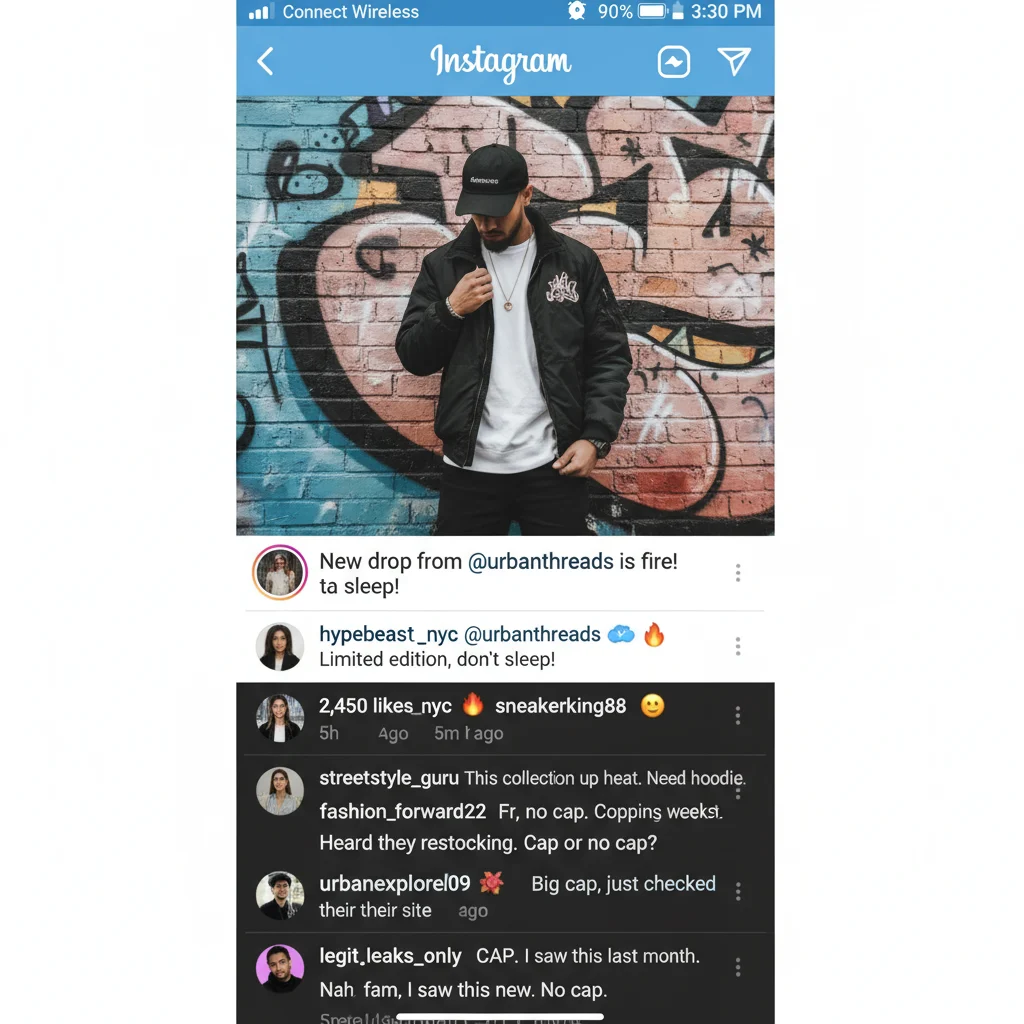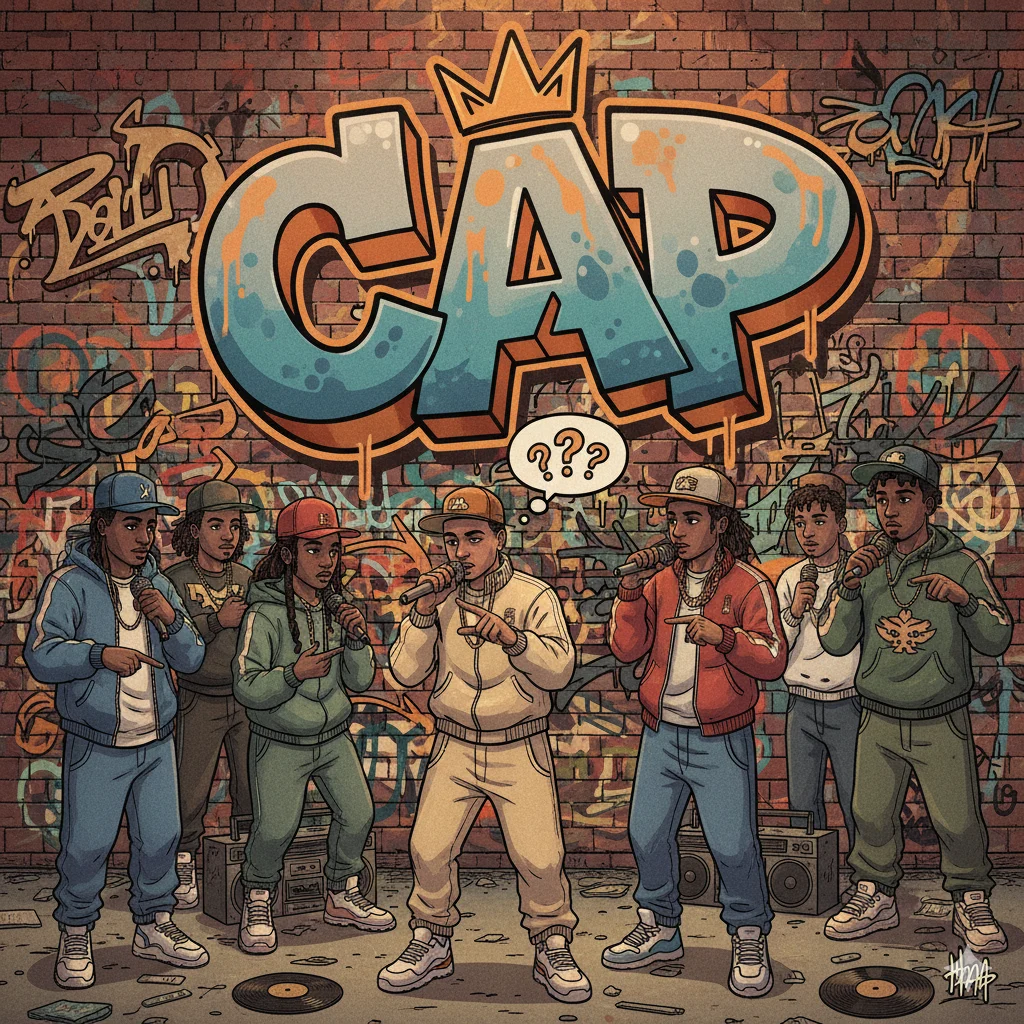Language never stops evolving — and one slang term that’s everywhere in 2025 is “cap.” If you scroll through TikTok comments, Twitter threads, or Snapchat stories, you’ll see phrases like “That’s cap!” or “No cap.”
But what does it actually mean? And how do you use it without sounding out of place?
This complete guide will break down cap meaning slang, explain no cap meaning, show you real examples, trace its origin, and teach you how to confidently use it in your texts, posts, and conversations.
📝 What Does Cap Mean in Slang?

In modern slang, cap means a lie, false statement, or exaggeration.
- If someone says “That’s cap,” they’re basically saying:
“That’s not true.” - Think of it as the modern version of saying “Yeah right” or “Stop lying.”
Example:
Friend: “I can eat 10 burgers in one sitting.”
You: “Bro, that’s cap.”
In short, cap = lie in internet slang.
✅ No Cap Meaning (Truth Emphasis)

If cap means lie, then no cap is the exact opposite — it means “no lie” or “I’m serious.”
People often use no cap to add emphasis when telling the truth, especially online.
Example:
“This concert was the best night of my life, no cap.”
Here, the person is clarifying they really mean it — they’re not exaggerating.
🔄 Cap vs No Cap: Key Difference
Here’s a quick table to make it crystal clear:
| Term | Meaning | Example Usage |
|---|---|---|
| Cap | Lie, exaggeration, fake statement | “That’s cap — he didn’t buy that car.” |
| No Cap | Honest, true, serious | “I studied all night, no cap.” |
Knowing this cap vs no cap difference will save you from misunderstandings in group chats.
🧠 Capping Meaning Slang
The verb form of this slang is “capping.”
- Meaning: To keep lying or exaggerating repeatedly.
- Example:
- “He keeps capping about his salary.”
- Translation: He keeps lying about how much he earns.
🌐 Cap in Social Media & Text Messages

This slang is all over the internet:
- TikTok: Users call out fake stories by commenting 🧢 or “cap.”
- Snapchat: Teens warn friends when someone’s lying.
- Twitter/X: People react to fake news or wild claims with “cap.”
- Instagram: Used in stories, captions, or DMs to call someone out.
In texting, you may even see the 🧢 emoji by itself. This is shorthand for saying cap.
🏛️ Cap Slang Origin

The phrase “cap” comes from African American Vernacular English (AAVE).
- In the early 1900s, “to cap” meant to boast or brag.
- Over time, hip-hop culture evolved it to mean lying or flexing too hard.
- Rapper Future popularized the phrase “no cap” in songs, which pushed it into mainstream internet slang.
🎶 Cap in Music & Hip-Hop Culture
You’ll find dozens of hip-hop tracks that mention “cap” or “no cap.”
Examples include:
- Future & Young Thug — No Cap
- Pop Smoke — lyrics calling out “cap” behavior
- Social media rap battles often use 🧢 to roast opponents
This shows how slang from music quickly becomes Gen Z online language.
📖 Examples of Cap in a Sentence
To make sure you never misuse it, here are 20 examples of cap slang meaning in action:
- “That story is big cap.”
- “You’re capping right now.”
- “Stop the cap — we know the truth.”
- “This deal is too good to be true. Cap.”
- “He said he’s a millionaire? Cap.”
- “No cap, this is the best ice cream spot in town.”
- “Why you always capping?”
- “That post is pure cap.”
- “She’s acting like she didn’t see me. Cap.”
- “He said he never gets nervous. Big cap.”
- “No cap, I worked all night on this project.”
- “The whole story sounds like cap.”
- “He keeps capping about his GPA.”
- “No cap, this car really is mine.”
- “You’re capping about winning that game.”
- “Cap alert 🚨”
- “That’s not just cap, that’s mega cap.”
- “Stop capping — we saw the proof.”
- “He capped hard in that interview.”
- “No cap, this movie made me cry.”
🧢 Emoji Meaning
The 🧢 emoji literally means a baseball cap, but in slang it’s used as a symbol for lying.
Example:
“I studied 12 hours straight 🧢” → This means they probably didn’t.
If someone comments 🧢 on your post, they’re calling your claim fake.
📊 Cap Slang Across Platforms
| Platform | How It’s Used |
|---|---|
| TikTok | Memes and reaction videos saying “cap” |
| Snapchat | Teens DM “no cap” for serious moments |
| Twitter/X | Used to fact-check tweets |
| Appears in comments and captions | |
| YouTube Shorts | Used in commentary to call out lies |
❓ FAQs About Cap Slang
Q1: What does cap mean in slang?
Cap means lie, fake, or exaggeration.
Q2: What does no cap mean?
No cap means no lie, or I’m telling the truth.
Q3: What does capping mean?
Capping means lying or exaggerating repeatedly.
Q4: What does 🧢 emoji mean?
It’s shorthand for cap (lie).
Q5: Where did cap slang come from?
It originated in African American Vernacular English and became mainstream via hip-hop.
Q6: Is cap slang rude?
Not really — it’s casual but can be playful or accusatory depending on tone.
Q7: Can adults use cap slang?
Yes, but it’s mostly Gen Z slang — use it casually.
Q8: Is cap used worldwide?
Yes, thanks to TikTok and social media, it’s global now.
Q9: What’s the opposite of cap?
No cap is the opposite (meaning truth).
Q10: Can you use cap in professional texts?
Avoid it — it’s too informal for work emails.
🏁 Conclusion
Now you know exactly what cap meaning slang is — from its origin in hip-hop culture to its modern use on TikTok, Snapchat, and texting.
Whether you’re calling out a lie (cap) or confirming the truth (no cap), you can now join Gen Z conversations confidently.
Use it in the right context, sprinkle in the 🧢 emoji for effect, and watch your texts feel instantly more up-to-date — no cap!




